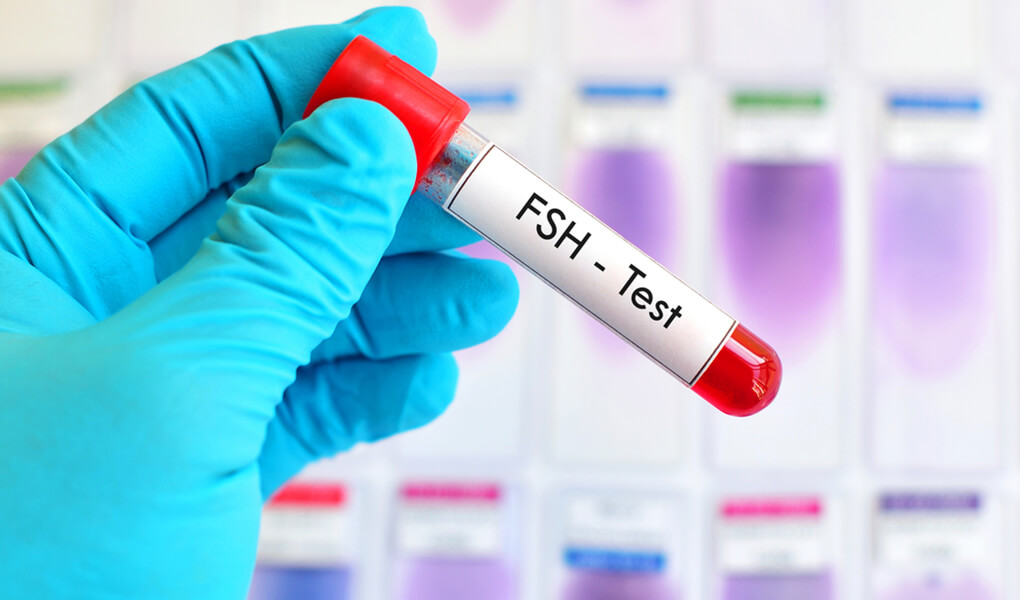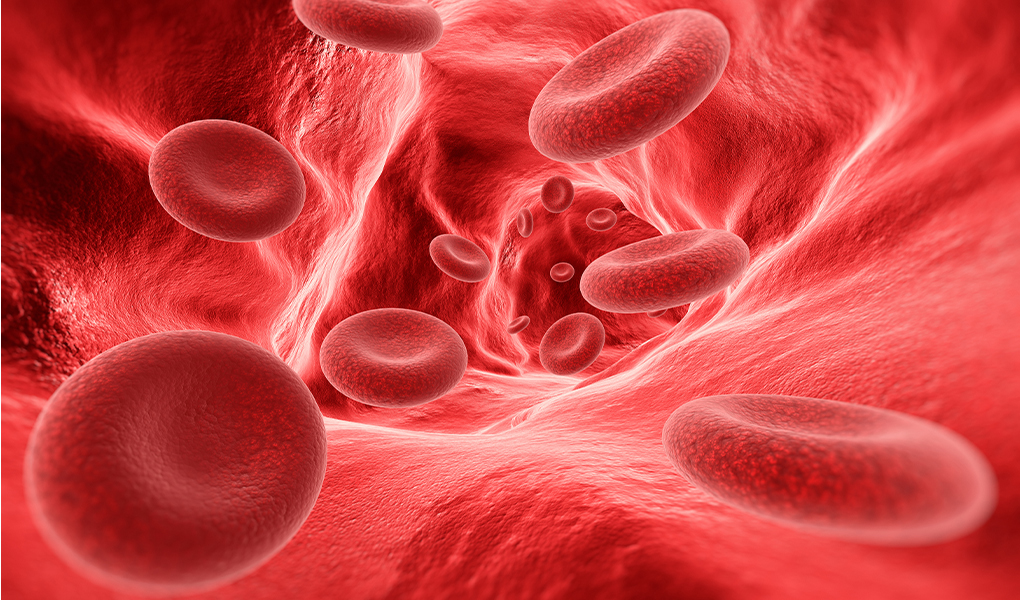Prior to the IVF treatment from the couple, variety of tests are required during diagnoses and also treatment for infertility. One of these tests is FSH. About this test frequently asked questions are “What is FSH?” “How Does FSH Applied?” “What are the normal values of FSH?”. You can find answers to all your questions on your mind.
What is FSH Hormone?
FSH is stands for follicle stimulating hormone, it is a very important for fertility of a person. It is released from brain’s pituitary on both men and women. Follicle stimulating hormone, is needed for men and women’s’ reproductive functionality. This hormone helps developing and maturing egg follicles of women. Additionally, increases the oestradiol production. It is necessary for menstrual cycle of women. On men this hormone helps, stimulate spermatogenesis and affects Sertoli cells of men for sperm production.
FSH belongs to a group of hormones called gonadotropic that together with luteinizing hormone (LH) produce gametes. These hormones are very similar in structure. These two hormones are glycoprotein structure and consists of two subunits called alpha and beta. Alpha units are the same in all three hormones (FSH, LH, HCG). In contrast, beta units are unique and perform their functions in the body through this subunit.
What is FSH Test?
FSH test is applied to determine the quantity of FSH hormone in body. This test alone does not help diagnoses therefore your doctor may request some other blood analyses along with FSH such as; HCG hormone, LH, HCT values. Hormone test helps determining the ratio of FSH this test can be applied either from blood and urine. If your doctor requested a blood test, you will have to give blood sample at an health centre. If your doctor suggested urine analyses, as FSH may differ at different times of the day, you will be requested to collect samples for 24 hours. That is why, blood analyses are more common for FSH test.
Before you do your FSH test, you must tell your doctor your currently used medication. Some medications may manipulate the FSH result. Some of those medications includes levodopa, cimetidine, clomiphene. Additionally, birth control pills affect the FSH results.
Why FSH Test is Requested?
FSH test, is requested to be able to understand what causes infertility. For men, FSH test is requested when insufficiency in testicles diagnosed, when sperm count is low, other sexual disorders such as male erectile disorder for women, it is requested to determine menstrual cycle period, when examining irregular menstruation and when diagnosing ovarian insufficiency.
What is the Ideal Level of FSH Hormone?
FSH on women changes through out life cycle and depending on the menstrual cycle. Therefore, when this analysis is examined patients age and menstrual cycle should be taken into account. FSH levels should be as shown below, baring in mind the patients age and menstrual cycle. For men FSH levels may change depending on the patients age.
For Women:
Age between 0-7: <6.7 mIU/mL Age between 8 or after puberty: follicular phase: 3.1-7.9 mIU/mL Ovulation phase: 2.3-18.5 mIU/mL Luteal phase: 1.4-5.5 mIU/mL Menopause: 30.6-106.3 mIU/mL
For men:
Age between 0-7: <6.7 mIU/mL After age of 8:1.3-19.3 mIU/mL
What is Ideal FSH Level for Becoming Pregnant?
Decreasing chances of getting pregnant starts when the FSH hormone value rises above 10 mIU / mL. When FSH levels exceed 15 mIU / mL, the likelihood of becoming pregnant decreases significantly. The greater the increase in FSH, the lower the chances of getting pregnant.
What Does Decreased Value of FSH Hormone Mean?
Lack of follicle-stimulating hormone in women, causes incomplete development in puberty and poor ovarian function. In this case, the ovarian follicles do not grow properly and do not release eggs, leading to infertility.
FSH is also necessary for proper sperm production. In men, if the follicle-stimulating hormone is low, this may cause adolescence deficiency and sperm deficiency (azospermia) may result with infertility. In men, partial follicle-stimulating hormone deficiency can lead to delayed puberty and limited sperm production (oligosospermia). However, one still has a chance to be a father. If follicle-stimulating hormone loss occurs after puberty, there will likewise be a reproductive loss.
In addition, FSH hormone shows a decline by; pregnancy, sickle cell anemia, elevated prolactin, eating disorders, early adolescence associated with adrenal tumor, sarcoidosis, pituitary gland surgery or radiation therapy, meningitis, head traumas, slow functioning of the thyroid gland, sex hormone secreting tumors, congenital adrenal hyperplasia.
What Does Increased Value of FSH Hormone Mean?
Ovarian and Testicle Disorders: Often, increased FSH levels are a symptom of a problem in the ovary or testis. If gonads cannot produce enough amounts of oestrogen, testosterone and / or inhibin, correct feedback control of FSH production from the pituitary gland is lost and both FSH and LH levels increase. This condition is called hypergonadotropic-hypogonadism and is associated with primary ovarian failure or testicular failure. This occurs in cases such as Klinefelter syndrome in men and Turner syndrome in women.
Menopause: Follicle-stimulating hormone levels in women begin to increase naturally in women during menopause. This reflects a decrease in the production of oestrogen and progesterone, along with a decrease in the function of the ovaries.
Polycystic ovary syndrome: Ovarian cysts can cause hormonal imbalances in women.
In addition, high FSH values may occur in men due to testicular damage caused by alcoholism. FSH levels may be observed in men due to testicular inflammation (orchitis) and testicular torsion, while elevated FSH values may be observed in diseases such as cirrhosis, chronic renal failure and AIDS.
What is FSH Control Mechanism?
Many hormones in the body work together. If any hormone acts as a stimulant or trigger of another mechanism, it should take the signal and reduce its secretion after it has been able to activate the mechanism. This is called a feedback mechanism. Thyroid stimulating hormone, follicle stimulating hormone and many other hormones regulate itself in this way. If it does not get any result from the mechanism it stimulates, it is secreted more. For example, in menopause, no more follicles are produced, FSH cannot receive feedback and is more secreted. As FSH triggers follicle production, there are mechanisms that control the release of FSH.
The production and release of the follicle-stimulating hormone is regulated by a number of hormones that are released by the ovaries and testicles and are involved in the circulation. This system is called the hypothalamus-pituitary-gonadal axis. Hypothalamic gonadotropin-releasing hormone (GnRH) is released from the hypothalamus and binds to receptors in the anterior pituitary gland to stimulate both synthesis and release of FSH and LH. The released FSH is introduced into the bloodstream where it binds to the receptors in the testes and ovaries. Using this mechanism, follicle-stimulating hormone, along with luteinizing hormone, can control the function of the testes and ovaries.
In women, when hormone levels decrease towards the end of the menstrual cycle, this is detected by nerve cells in the hypothalamus. These cells produce more gonadotropin-releasing hormones, which stimulate the pituitary gland to produce more follicle-stimulating hormones and luteinizing hormones and release them into the bloodstream. The increase in the stimulating hormone of the follicle stimulates the growth of the follicle in the ovary. With this growth, the cells of the follicles produce an increasing amount of substances called estradiol and inhibin. In contrast, the production of these hormones is detected by the hypothalamus and pituitary gland, and less gonadotropin-secreting hormone and follicle-stimulating hormone are released.
How Does FSH Hormone Decrease?
Apart from the treatment protocol suggested by your doctor, healthy lifestyle (regular sleeping pattern, healthy diet, light exercises) helps stabilizing hormone levels. Generally, hormone levels can be affected by stress, therefore lowering stress is a good supportive method.
For all your questions, you can contact to us from 444 39 49.





Be the first to comment